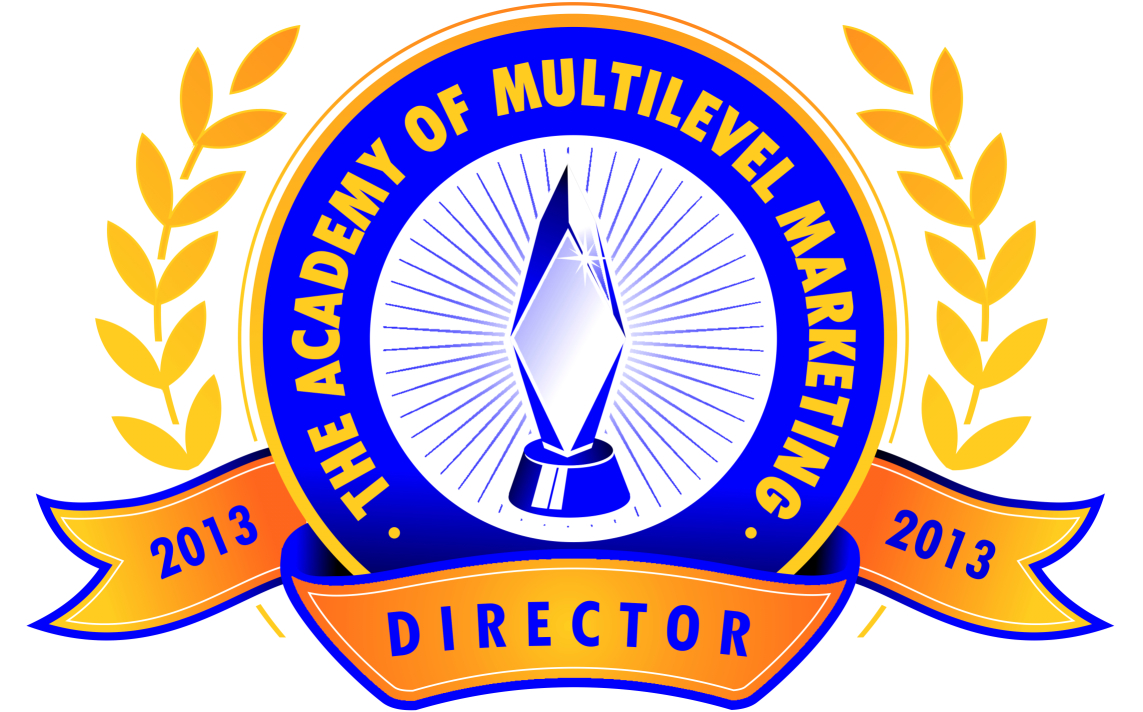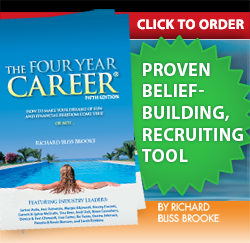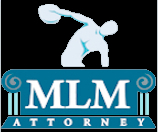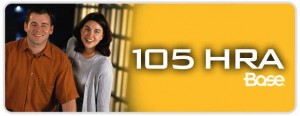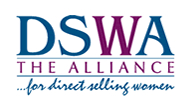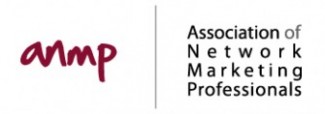Herbalife Victim of Yet Another Bogus Short Seller Attack
By Len Clements © 2012
A “short seller” is someone who makes money by the price of a company’s stock going down, rather than up.[1] The two methods to accomplish this are “shorting” the stock or buying “put options”, but the mechanics are not relevant to the issue here. Bottom line: If you can convince enough other shareholders to sell their shares, and the stock’s value drops, you make money.
For the record, I’m not anti-short selling. I’ve shorted stocks in the past. Most of them right before their stocks increased in value. I’m not saying I’m good at it, just saying I’m not against it. Also, I do not own Herbalife stock, nor that of any MLM company.
There are basically two classes of short sellers: One who analyzes a company, genuinely believes it’s share price is overvalued, and bets on other investors eventually realizing this, and the price of its stock going down. These more honorable short sellers investigate all aspects of a company, the positive and the negative, and if they have questions or concerns they at least attempt to contact the company and/or others with an objective expertise in the area of concern. They would go into an analysis of a public MLM company by asking the question, Is this a legitimate MLM company, or an illegal pyramid scheme disguised as one? Do their products have intrinsic value? Are they reporting their financials accurately?
Then there’s the dishonorable, deceptive short seller who doesn’t care about things like facts, fairness, objectivity, or balance. If they find what they believe might be a flaw with some aspect of a company they have shorted, or intend to short, they will never contact the company and allow them to address it. They will never contact any other experts or authorities who may explain away the concern. They never include as part of their due-diligence things like, touring the company’s headquarters or manufacturing plant, meeting with the senior management, or interviewing happy customers or successful distributors. Instead, they deliberately seek out only those “experts” who will fully support their “short thesis”, and interview exclusively disgruntled customers and reps. They go into an investigation not with the goal of discovering the truth about a company, but rather with a deliberate agenda to destroy its credibility, and thus its value, and thus its share price. They would go into an analysis of a public MLM company by asking the question, How can I make this company look like an illegal pyramid scheme? How do I devalue their products? How can I make it appear as if there are improprieties in their financial reporting?
David Einhorn is an example of an honorable short seller. He was looking into Herbalife, had some concerns, and brought them up to senior management on a public investor call. He merely asked a couple of what should have been innocuous questions about Herbalife’s tracking of retail sales to outside customers, and rank reporting, but even the suspicion among investors that Mr. Einhorn was working on a short thesis regarding Herbalife caused it’s stock to plummet 20% that day. The anticipation of him presenting his short case at an upcoming Ira Sohn investors conference caused it to drop even more. Mr. Einhorn never mentioned Herbalife at the conference, not another word about Herbalife since, nor has he even confirmed he had a short position – and the stock recovered less than a third of its losses. That’s an example of how powerful and influential these high profile stock gurus can be in effecting the share price of companies they are even suspected of investigating.
Barry Minkow[2] is an, albeit extreme, example of a dishonorable short seller. He not only entirely met the above definition, he extorted the companies he attacked. Back in 2007 and 2008 he produced prolific amounts of propaganda against USANA, Nu Skin, Medifast, PrePaid Legal (now Legal Shield) and Herbalife, then got at least two of these companies to pay him a low six-digit sum to drop his attacks. In the case of Herbalife he went a step further by removing all of his online Herbalife attacks and retracted all of his negative assertions regarding their allegedly “deadly” products, and allegedly fraudulent business model. He went on to actually praise Herbalife’s products and business model.
Then he tried the same scheme on Lennar, a large, deep pocked home builder. Unlike an MLM company that requires its integrity, good will, and credibility to remain constantly high to survive (because, as a group, MLM reps are a fickle, flighty bunch who spook easily), Lennar could afford a prolonged bombardment and fought back. The end result was that Barry Minkow, who had already spent over seven years in prison for, among other things, stock fraud, was convicted of extortion and, once again, stock fraud and sent back to prison, where he now resides. For the full Minkow story, visit MinkowBelowTheIceberg.com.[3]
And then there’s Bill Ackman. In my opinion, based on how his activities appear to me, he is absolutely a dishonorable short seller. By his own admission he has made no attempt to contact Herbalife management, or any of their successful distributors or customers, or anyone from among the numerous objective legal authorities and industry experts available to him (instead citing only the findings of a couple devoutly anti-MLM critics). In other words, it appears he didn’t want any of his criticisms to be addressed before he had an opportunity to wreck Herbalife’s stock value, and cash in on the crash.
For example, when Ackman questions why Herbalife cites “Retail Sales” (the suggested retail price of the products), as a measure of revenue in their financial disclosures, then goes on to assume the most nefarious explanation (deception on the part of Herbalife), why didn’t he simply call Herbalife’s Investor Relations department, or get on an investor call like David Einhorn did, or call Herbalife CEO Michael Johnson directly (I bet he’d have taken his call), and ask, Why do you account for sales this way? But then Ackman would run the risk of getting a valid explanation. Like, the fact that two lines lower on Herbalife’s 10-Q (quarterly) and 10-K (annual) statements they openly and clearly disclose what the actual revenue was, based on the actual selling price of the products, which is the basis for practically all other ratios and financial calculations, including net profit.[4]
Regarding Herbalife, Ackman claims, “This company’s goal is to keep things hidden, as opposed to make things transparent.” I always shake my head when I hear this accusation made against a company that chose to be publicly traded. That is, they made the voluntary decision to open their books, management, products, and business model to detailed public scrutiny, and allowed their financials to be fully audited by an independent third party – and people like Bill Ackman.
If there’s any doubt as to what Ackman’s agenda was going in, none should remain after his declaration, “Everything that I have seen about this company has simply been an affirmation of what we believed at the very beginning. We had a supposition in the beginning that we’ve been able to prove over a long period of time.”
I spent over two months researching and producing a 30 page rebuttal to Minkow’s initial 86 page smear report against USANA (which, of course, he had shorted, and who’s stock dropped 15% the day his report was made public). Ackman’s “short thesis” against Herbalife is a 334 page PowerPoint presentation, plus a well stocked anti-Herbalife website. I’m only 150 pages into his presentation and already have amassed what would easily be over 30 pages of rebuttal points. The logical, mathematical, and legal inaccuracies in Ackman’s report are literally overwhelming. Writing novella length rebuttal reports doesn’t pay anything (if I could figure out a way to monetize such activity I’d be richer than Bill Ackman!), and we don’t seem to have any trade associations that are willing to, or are even capable of, supporting such industry defending activity. So, I’m going to focus on just three main points. At least for now. These aren’t even the three most damning rebuttal points, but rather the three that most go to Mr. Ackman’s true agenda, based on what I’ve discovered after having reviewed less than half of his case against Herbalife.
Point 1: Ackman’s Profit Motive
Much like Minkow, when Ackman is asked about his profit motive for shorting, and then attacking, Herbalife he dismisses it as a red herring. Minkow claimed his “puts” on USANA would probably not even cover his investigative costs. We eventually learned he made $61,000 on those puts – and was paid a quarter of a million dollars by three other short sellers to fund his USANA hit piece. Minkow’s anti-USANA campaign was primarily funded by fellow stock fraud felon Sam Antar, along with $10,000 from hedge fund manager Whitney Tilson (the same Whitney Tilson that just announced his short position in Herbalife, right before it regained 30% of it’s value). Ackman, on the other hand, dismisses any profit motive by proclaiming that any profit he makes from his “personal” short position, which he refers to as “blood money”, will go entirely to charity. He claims, “I don’t want to make money off of this”, and that, “by taking the economic part out of my investment by giving the money way…”, this should counter any speculation that he has a profit motive. As can be seen in recent CNBC[5] and Bloomberg[6] interviews, this claim is always accepted unchallenged, hook, line and sinker.
Fine. I’ll challenge it.
One of the only two charities that Ackman has identified as being the recipient of his “personal” profits is his own charity, the Pershing Square Foundation, which he formed in 2006 (the other being the Ira Sohn Research Conference Foundation). In the five years the Pershing Square Foundation filed a form 990-PF Mr. Ackman has personally contributed sums of $5.9 million (2006), $36,645,650 (2007), $6,975,000 (2008), $15,520,000 (2009), and $55 million (2010). Ackman’s investment company, Pershing Square Capital, has donated over $7.2 million during that time. The rest of the $127,388,713 contributed to the Pershing Square Foundation amounts to a total of $75,000 by three other private contributors. In other words, Ackman was already going to donate tens-of-millions of dollars to his own charity, and he’s simply funding this donation, at least in part, by his personal Herbalife short position.
What is most telling is the comment that begins Ackman’s Bloomberg interview where the interviewer states, “You will be donating your personal profits from this trade to charity including a minimum of $25 million regardless of whether you make money…” (emphasis mine). So, again, it’s $25 million Ackman is going to donate either way, it’s just a matter of where it comes from – his own pocket, or from his Herbalife short position, thus this $25 million can remain in his pocket.
Furthermore, Pershing Square Capital possesses over 20 million shares of shorted Herbalife stock, which is reportedly over 97% of all the stock available to short.[7] Ackman claims he shorted the stock back in May. Considering David Einhorn and Bill Ackman are friends, and both spoke at the Ira Sohn conference in May, we can be fairly certain Ackman shorted Herbalife just before Einhorn’s questions took it’s stock down. So assuming Ackman shorted the stock at around $70 a share, and its now trading at about $26, Ackman’s Pershing Square Capital has already made about $880 million. Even if he shorted Herbalife after the Einhorn induced drop to about $46 he’s still swimming in $400 million of “blood money”.
When asked by CNBC interviewer Andrew Sorkin about his “blood money” comment, Ackman explains, “I don’t want to make money off of this… It is not a happy thing.”[8] Although we don’t yet know what his “personal” stake is, we do know his investment firm has so far made four hundred to eight hundred million dollars! And I bet he’s just a little bit happy about that.
Keep in mind that for every single dollar that Herbalife’s stock rises, Mr. Ackman’s company loses $20 million, and he has less from his personal short interest to donate to his own charity, that he was already going to donate millions to anyway. But naw. He’s totally explained away his profit motive.
It deserves to be noted here that Ackman’s $25 million donation will be going to pediatric cancer research, and that both he and his wife, and his Pershing Square Foundation, have been extremely philanthropic with the focus of their generosity directed towards good causes that benefit children. For that Bill Ackman deserves recognition and praise.
If only he didn’t have to go to such effort to destroy the livelihoods of the over 5,000 Herbalife employees and the well being of their families and children, the 90,000-plus distributors who are earning significant, if not living income from their Herbalife business, and their families and children, and the $1.8 billion that he’s pretty much single handedly caused other innocent Herbalife shareholders to lose since he announced his short position on Dec. 19th. This is not even to mention the devastating effect this will have on all the support vendors employed by Herbalife around the world should Ackman succeed in his stated goal of taking Herbalife’s share value to “zero” – meaning completely destroying Herbalife.
Point 2: Market Saturation
Ackman claims Herbalife is about to reach a point of market saturation – that inevitable point where all pyramid schemes must collapse. Like, the “Dinner Party”, “Women Empowering Women”, all the countless “Gifting” schemes, and the granddaddy of all pyramid schemes, the “Airplane Game”.[9] Each of which rarely lasted more than one year.
I wonder, how many more years does a 32 year old company like Herbalife have to exist, and continue to grow, before this notion of MLM company’s succumbing to “inevitable market saturation” becomes folly? Ackman says his evidence that it’s about to happen now, as opposed to, say, after 10 years, or 20 years, or maybe 10 years from now, is that Herbalife is “running out of countries” to move into. He then cites small, recently opened countries like Guiana and Zambia as evidence. However, Herbalife is operating in a total of 79 countries, launched in 1980, and has reported a net gain in United States sales in the last 15 consecutive quarters (quarter over quarter), and 30 of the last 31 – all occurring after they were 25 years old and had amassed over 1 million distributors! Herbalife reported 2.7 million distributors worldwide at the end of 2011[10], and now has over 3.1 million distributors.[11] In fact, for the first three quarters of 2012 Herbalife’s average U.S. sales growth (21.2%) has exceeded their worldwide sales growth (17.7%). Furthermore, Amway was launched in 1959 (just a year after I was launched), and is now in over 100 countries and territories, currently has “over 3 million distributors”[12], and revenues of $10.9 billion in 2011 which project to over $12 billion for 2012[13] – and they just celebrated a record sales volume quarter.[14] Amway is still growing! Herbalife’s sales over the last four quarters (Q1 2011 through Q3 2012) was about $3.5 billion.
So if a company that’s almost 22 years older than Herbalife, and is in at least 21 more countries, and has over three times the sales revenue, hasn’t reached this mythical point of market saturation, for what possible reason does Bill Ackman believe Herbalife is on the verge of it? Are we really suppose to believe that with all of his resources, and with all of his investigative skills, and the proposed 18 months he and his “team” have had to research Herbalife, that he somehow missed all this information that I alone just uncovered with one malfunctioning Mac, in less than 45 minutes, while eating an Enchirito?
How many more MLM companies have to surpass their 40th anniversary? Apparently eight isn’t enough.[15] How many more years does the MLM industry have to grow? According to the DSA the entire MLM industry has had a net gain in distributorships in 17 or the last 18 years in the United States – after it had existed for over half-a-century! The entire MLM industry hasn’t even reached market saturation in only this one market, let alone any specific MLM company, worldwide.
How is Ackman’s claim of Herbalife’s imminent market saturation not absurd on its face?
Point 3: Third Party Invalidation
If there was ever more smoke rising from a warm gun it would be the one appearing from under the “Third Party Investigative Reports” menu option on Ackman’s website, ironically titled “Facts About Herbalife”.[16] There you will find two links. One leads to a single article by über-anti-MLM critic Robert FitzPatrick, who’s case against MLM has been thoroughly discredited[17], as was his anti-USANA report which Barry Minkow paid him to create[18]. There’s one more link titled “Fraud Discovery Institute Reports”. Within the latter you will find four reports making a case for why Herbalife is a “doomed by design” pyramid scheme, is “cooking the books”, and is producing potentially deadly products with “dangerously high levels of lead” in them.
The Fraud Discovery Institute was Barry Minkow!
That’s right. All four of these “Third Party Investigative Reports” were penned by a twice convicted, and currently imprisoned, stock fraud felon and extortionist! They were part of Minkow’s attempt to manipulate Herbalife’s stock, which he had shorted back in 2007, that he later completely retracted! In August of 2008 Minkow declared Herbalife’s business model was, in fact, legitimate, and that its product are safe. A press release[19] jointly produced by Herbalife and Minkow declared:
“The Fraud Discovery Institute retracts its accusations against multi-level marketer Herbalife… Upon further investigation by FDI founder Barry Minkow, the Fraud Discovery Institute became convinced that Herbalife employs systematic internal controls, including the use of outside, independent laboratory testing, which ensures their products are manufactured safely and in compliance with California law. It is evident to the Fraud Discovery Institute that Herbalife produces products that are safe, and that the company strives for continuous improvement in product quality.
The Fraud Discovery Institute immediately withdraws all accusations against Herbalife, including any Proposition 65 allegation relating to any Herbalife product and any contentions against the Herbalife business model.”
In several books written by, or about, Barry Minkow he tells of his close friendship with a man – who he eventually steals $2,000 from and causes to lose his job – who joins Herbalife around the mid-80s. Not only does Minkow have nothing bad to say about Herbalife within this context, in his own book “Buyer Beware” (1997) he includes a section on MLM where he states:
“Companies such as Amway, Avon, Excel, Herbalife, Mary Kay, and Tupperware have opened the doors to hundreds of copycats, some legitimate and some that hide as pyramid schemes. In this chapter I address MLM companies that are not pyramid schemes.”[20]
“Multilevel marketing is often a lawful and legitimate business method that uses a network of independent distributors to sell consumer products.”[21]
So Minkow likes Herbalife, believes they are a “legitimate” company and “not a pyramid scheme”, goes to prison for perpetrating one of the largest stock frauds in U.S. history, gets out, becomes a credible “fraud buster” (which he actually was in the beginning), then shorts Herbalife’s stock, trashes them viciously, makes a reported $50,000 on his puts, then suddenly retracts every negative accusation and states Herbalife is all A-okay. Then gets busted for stock fraud and extortion and is sent back to prison.
That’s the source of Bill Ackman’s “Third Party Investigative Reports”!
Miscellaneous Mistaken and Misleading Mudslinging
I wish I could write another 30 pages about this, but alas, I have to make a living. Those Enchiritos don’t make themselves.
If I could, I’d also cover, in a lot more detail, Ackman’s other blunders and ludicrous logic, such as the tired, impotent accusation that MLM distributors “make more money from recruitment than from sales”. Of course they do! Just like Ray Kroc made more money from the sales of hamburgers via his McDonalds franchises than from the Big Macs he personally fried and wrapped. Just like every business owner on Earth, over the entire history of business, has made more money by getting other people to sell their products than from their own personal sales! Seriously, does this ridiculous argument still have weight with anyone? Apparently Mr. Ackman is hoping it does.
Ackman says “99.9%”[22] of Herbalife reps don’t make money, and that Herbalife is supposedly hiding this fact. That is, hiding it by openly disclosing a detailed breakdown of what percentage of active reps reach each rank, the percentage of reps that are active, and the average earnings at those ranks, within their annual “Statement of Average Gross Compensation of U.S. Supervisors”.[23] Indeed, this is where Ackman is obtaining his payout data that he claims Herbalife is not disclosing – from Herbalife’s public disclosures. This is a disclosure that Herbalife is not legally required to produce, but that they have chosen to provide. From this disclosure we can conclude that about 10% of “Active” Herbalife Supervisors earn a significant profit[24], which amounts to about 3.9% of all Herbalife reps, so the actual percentage who “don’t make money” is more like 96.1%, not 99.9%. A picked nit, perhaps, but if Ackman is so well armed with facts to support his case, why the need for any hyperbole at all?
The main point here is that even this 96% don’t make money because 96% don’t do what they are suppose to do, well enough, long enough, to make many. It’s directly analogous to those who enroll in gym memberships. Although there have been no studies to nail down the exact number, we can surely agree that at least 96% of all those who filled out a gym membership application did not come remotely close to meeting their fitness goals. Why? Because of bad treadmills, bad weight benches, bad trainers, bad saunas… or because they didn’t do what they were suppose to do well enough, long enough?
Ackman actually states that failed Herbalife reps, as a group, “spend an enormous [amount of] time and energy, and they’ve sucked in their friends and family …”. But, that describes what the successful distributors do! If they’ve spent a lot of time and energy successfully persuading their friends and family to join, and they’ve presumably all expelled the same time and energy getting their friends and family to join – then these would be the folks who are making money. Those that fail to make money are those that fail to enroll others, or acquire any customers. Or, perhaps they enroll one or two friends, who then fail to enroll anyone, who then all quit – usually within a few days or weeks. In Minkow’s case against USANA (published in early 2007) the claim was made that the large majority of reps did not make a profit, and the large majority quit within the first year. However, in USANA’s voluntarily reported 2006 “Average Earnings Chart”[25] they explicitly defined the lowest rank where at least some profits were virtually assured to take an average of 18 months to achieve. So of course the large majority won’t make a profit if the large majority quit within the first 12 months! And indeed this describes the behavior of the large majority of MLM participants in any MLM company. Yet, in spite of this Harlan Tunnel sized hole in Ackman’s They-all-work-hard-and-enroll-others-who-all-do-the-same-but-fail-to-make-money argument, apparently no one can see it from Wall Street.
Ackman, like Minkow, has a knack for misrepresenting otherwise insignificant information in an effort to form mushroom clouds out of small puffs of smoke. For example, Ackman insinuates deception on the part of Herbalife for their “Millionaire Team” rank’s title. “Despite the name, distributors only earn $97,000 per year”, he says. Mr. Ackman is the one hypocritically doing the deception here. Herbalife reports the “median” annual earnings at this rank is $97,303, which means if all annual incomes of every “Millionaire Team” member were listed in descending order, the one half way down the list would be $97,303. Therefore, there certainly can be, and likely are, annual million dollar earners among those at the very top of this list.
Another example is Ackman’s claim that “[Herbalife’s] 70% volume requirement can include sales to one’s downline. By definition, this does nothing to limit internal consumption”.[26] That’s because the 70% volume requirement is designed to limit the front loading and stock piling of product, not to limit internal consumption. A fact well known by MLM participants with even a modicum of experience. Ackman goes on to say that Herbalife has enforced the 70% volume restriction fewer than ten times from 2006 to 2009.[27] Continuing his obligatory glass-half-empty line of reasoning he suggests this is due to “lax enforcement”. No alternate explanation is even considered, such as – very few Herbalife distributors violate the policy.
When making his case for why Herbalife products sell so well in spite of their premium pricing Ackman tries to play ignorant by claiming it can’t be due to an exorbitant advertising budget because Herbalife reported “de minimis”[28] advertising costs to the SEC.[29] But, of course, multilevel marketing companies employ word-of-mouth advertising as their primary method of promotion, and the financial incentives paid to those who talk up the products are in lieu of any conventional advertising. Herbalife’s actual cost of advertising has averaged almost $328 million in each of the first three quarters of this year, and exceeds $8 billion just since 2000![30]
The best example might be Ackman’s response to Herbalife CEO Michael Johnson’s exclamation that “The United States will be better when Bill Ackman is gone.”[31] When the comment was reiterated, completely out of context, Ackman called it “scary” and said he was “obviously concerned about my personal safety [and for] other people’s personal safety”. He then asks rhetorically, “When the CEO of a public company makes threatening statements, you have to ask yourself, why would he possibly say something like that?’. Here’s Mr. Johnson’s comment placed back in its proper context:
“This is a legitimate company. Mr. Ackman’s proposition that the United States would be better when Herbalife was gone – The United States would be better when Bill Ackman’s gone.”
Mr. Johnson’s heated, off-the-cuff remark was simply an attempt to turn around a comment that Mr. Ackman had already made about Herbalife. He obviously was referring to Ackman being gone from commenting publicly, online and on television, about corporate valuations and stock analysis. And, possibly, he might even have meant gone from society. As in, imprisoned. But obviously he was not suggesting that Ackman be gone from the Earth!
Then there’s the “Former Distributor Testimonials” section of his “Facts About Herbalife” website where, out of what should be tens-of-millions of screwed, angry ex-distributors (if all he claims were even fractionally true) he’s managed to cherry pick a grand total of 57 complaints by failed, ex-Herbalife reps. At least, we can only assume that’s who they are since a large number of them are anonymously posted comments on anti-MLM message boards such as mlmsurvivorclub.com, mlmwatch.com, and the [sarcasm on] oh so reliable ripoffreport.com [sarcasm off]. More than half are at least seven years old, some going back almost 12 years. I have not perused them all, but the general theme seems to be their failure in Herbalife was always someone else’s fault, and that someone should have told them what all the expenses were going to be before they incurred them. I wonder, how does one first discover what costs are involved in operating a business only after they’ve incurred them? And rather than go after Herbalife, shouldn’t we be trying to track down those scoundrels who held a knife to the throat of all these disgruntled ex-Herbalife reps and forced them to buy thousands of dollars of allegedly unwanted inventory, useless sales tools, and ineffective training? Or, might this have been poor, but completely voluntary business decisions made entirely by the failed rep?
Here are a couple of the testimonials Ackman presents (quoted verbatim):
“That piece of sh*t ETeam Home Business System, associated with Herbalife International, screwed me over royal with their phoney training program and unscrupulous business practices! The sponsor’s are two-faced a**holes too!… Hey Herbalife / ETeam, Keep your crappy unsafe products, along with your so-called training program and shove ’em up your f*cking a**, you blow b*st*rds!”[32]
“How about HerbalLif’s “incomeathome” incomeathome.com what a scam
This has to be the biggest scam in the USA today, other than Obamo of course.”[33]
Here’s a telling side note to Ackman’s collection of deliberately one-sided testimonials. When asked during the CNBC interview, “Did you participate, or anyone on your team participate, as a distributor?” as part of his investigative process, Ackman responds, “No”. His spurious excuse was, “We wanted to, but we’d have to sign a distributor agreement. If you sign a distributor agreement you agree to a confidentiality stipulation. We obviously could not agree to that. So we did not.” Soooo… why not have one of his team members sign up, get on the products, review the support material, go through the training, and simply monitor their experience, and then freely comment on it? And let’s get this straight – a business based entirely on the word-of-mouth promotion of its products and opportunity has a clause in their distributor agreement that disallows their distributors to talk about any of it? And if there was such a strong prohibition in place preventing ex-Herbalife distributors from even commenting on Herbalife, let alone disparage them, then wouldn’t the authors of all 57 testimonials Ackman presents be in gross violation of that policy?
Ackman was asked during the Bloomberg interview the obvious question as to why, if all he says is true, and after having amassed, according to Ackman, “the 2.5 million distributors that exist today and maybe 10, 15 million over the passage of time”, there are so few complaints with legal authorities and only about 0.5% (one-half of one percent) of product is ever returned to Herbalife? If, indeed, 99.9% of these folks are victims of a scam that has cost them all “a few thousand dollars each”, Herbalife should be getting deluged with millions of dollars in product returns monthly, and complaints to state and federal regulators should be in the thousands per year. Ackman’s response? “You can’t return the product”, and these marks are all just “too ashamed” or embarrassed, and generally are part of a demographic that “doesn’t trust the government”. Seriously. That’s his explanation. He claims the products can’t be returned because of all the restrictive hoops Herbalife makes you go through. During the CNBC interview he explains, “The people that have any kind of meaningful amount of product are sales leaders.” So, that alleged fraction of one-percent that are sales leaders who have all this product they are not returning explains, at least in part, why 99.5% of all Herbalife product is never returned? Ackman also explains that Herbalife reps must assert that 70% of all product previously purchased has been sold or consumed before they are paid their commissions, and Herbalife won’t allow them to return what they claimed they’ve sold or consumed. Since, he continues, they all just rubber stamp this declaration each pay period, when it comes time to return their inventory for a refund Herbalife now has this clever little gotcha’. That is, they’ll refuse to pay a refund for all that product you claimed you had already sold or consumed. So let’s consider this. If an Herbalife distributor is found to have grossly violated the Policies & Procedures they agreed to, and has committed fraud against the company by declaring they’ve sold product they really hadn’t sold, Herbalife should just overlook it and say, “Ahh, don’t worry about it. Here’s a full refund for all that product you lied to us about having sold.” At least, it seems that’s what Mr. Ackman would have them do.
This 70% Rule employed by Herbalife is a safeguard against excessive inventory loading, which Ackman has asserted Herbalife does not adequate enforce. And now he has cleverly exploited it to place Herbalife in a damned if they enforce it and damned if they don’t position.
As for this “too ashamed”, or “can’t afford an attorney” explanation for not complaining, wouldn’t those poorest victims, who can least afford to lose “several thousand dollars” be the most motivated to try and get it back? Yet, a tiny fraction of one percent of them even complain to the Better Business Bureau – which rates Herbalife an A+.[34] Based on a 2010 MarketWave analysis of BBB complaints against the top 100 MLM companies Herbalife placed seventh in total number of complaints, but their complaints-to-distributor ratio was among the lowest. The BBB currently reports 34 closed complaints within the last year[35] with about half involving a refund request, all of which concluding with Herbalife agreeing to refund, or having “fully refunded”, the amount in question.[36]
Conclusion
So now we are left with only two options…
Did Mr. Ackman know all of this, and he’s just employing the old “If you can’t dazzle ‘em with brilliance baffle ‘em with BS” strategy in an effort to fool enough of the people enough of the time to make a few hundred million dollars in “blood money”?
Or is he genuinely unaware of Herbalife’s current growth in the United States, Amway’s comparative growth, the utter lack of even the slightest shred of evidence that market saturation has ever effected a single MLM company, as well as Barry Minkow’s background and his most recent position on Herbalife, etc. etc, etc.? Which, if true, would mean he’s a grossly incompetent researcher.
I see no evidence that would suggest Mr. Ackman has ever been, previous to his Herbalife position, a grossly incompetent researcher.
“We simply want the truth to come out”, says Mr. Ackman.
So do I, Bill
Len Clements
Founder & CEO
MarketWave, Inc.
[4] Ackman also points out that Herbalife applies this retail markup to their compensation plan’s alleged “73% payout”, which I agree is inappropriate. Herbalife’s payout, as a percentage of commissions to wholesale sales, runs about 38-39%.
[7] http://www.bloomberg.com/news/2012-12-20/herbalife-drops-after-ackman-says-he-s-shorting-shares.html
[8] http://www.nbcumv.com/mediavillage/networks/cnbc/pressreleases?pr=contents/press-releases/2012/12/20/firstoncnbccnbc1356034747166.xml
[15] Shaklee, Amway, Avon, Mary Kay Cosmetics, Tupperware, Fuller Brush, Wachters, and NeoLife (now part of Diamite Corp.).
[20] Page 147
[21] Page 192
[22] This percentage is a direct quote from Bill Ackman during a CNBC interview.
[23] http://opportunity.herbalife.com/Content/en-US/pdf/business-opportunity/AverageGrossCompensation-English.pdf
[24] The highest earners at the Supervisor level earn several thousand dollars per year, although the “average” annual earnings is $901. I am conservatively counting 3.6% of this group towards this 10% estimate.
[26] Slide 125 of the PowerPoint presentation “Who Wants to be a Millionaire”.
[27] Slide 127 of the PowerPoint presentation “Who Wants to be a Millionaire”.
[28] Too small to be significant, trifling, or miniscule.
[29] Slide 24 of the PowerPoint presentation “Who Wants to be a Millionaire”.
[30] Royalty override expenses recorded from forms 10-Q and 10-K.
[31] http://tinyurl.com/AckmanCNBC; 1:45 mark.
[32] This complaint, as was the case with several others, involves a training and/or promotional system developed by field distributors, not Herbalife.
[34] Although, to be fair, Herbalife is an accredited member of the BBB and high grades are routinely awarded companies who paid for BBB accreditation, regardless of number or disposition of complaints.
[35] To place this in perspective, in 2010 there were 105 complaints against ACN, 89 against Melaleuca, PrePaid Legal had 74, Primerica had 60, Avon 42 and Ameriplan 39.
